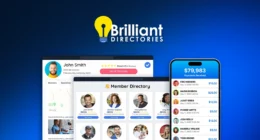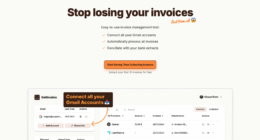The HubSpot Marketing Hub Software certification exam consists of 75 questions completed within 3 hours, requiring 57 correct answers to pass. Key focus areas include contact management, CRM integration, buyer personas, and campaign metrics. The exam emphasizes practical application over theory, testing candidates’ ability to effectively use HubSpot’s marketing tools and analytics. Understanding contact database management and performance tracking proves essential. Mastering these core components opens doors to advanced marketing strategies.
Quick Overview
- You need 57 correct answers out of 75 questions to pass, with a 3-hour time limit and 1-hour typical completion.
- Focus on practical application knowledge rather than theory, as the exam tests real-world marketing skills.
- Understanding contact management and CRM integration is crucial for questions about database organization and campaign reporting.
- Know how to create and utilize buyer personas, including demographic and psychographic data for 3-5 customer segments.
- Master campaign metrics tracking, including influenced contacts and closed deals, for performance measurement questions.
Exam Structure and Requirements

Success in the HubSpot Marketing Hub Software Exam requires a clear understanding of its structural components and essential requirements.
The exam structure consists of 75 questions that candidates must complete within a generous 3-hour completion window, though the actual test-taking time is approximately one hour.
To pass the HubSpot Marketing Hub exam, candidates need to correctly answer at least 57 questions, demonstrating their knowledge of marketing tools and strategies.
Success on the HubSpot Marketing Hub exam requires a minimum of 57 correct answers to validate marketing expertise.
The exam is designed to evaluate practical application skills rather than just theoretical understanding.
For those who don’t succeed on their first attempt, a 12-hour waiting period is mandatory before retaking the test.
This structured approach guarantees that candidates have adequate time to prepare and demonstrate their mastery of HubSpot’s marketing platform.
Contact Management Fundamentals
While mastering the HubSpot Marketing Hub requires understanding various components, contact management stands as a cornerstone of effective digital marketing operations.
Contact management in HubSpot centers around efficient organization and retrieval of customer data through its integrated platform. The Marketing Hub works seamlessly with both Sales Hub and Service Hub through a centralized database, allowing teams to access and update contact information efficiently.
This integration enables marketing automation processes while maintaining a healthy database of customer interactions.
Like industry leader Salesforce’s customization capabilities, HubSpot CRM leverages advanced technologies to enhance customer engagement and improve sales productivity.
Key aspects of contact management include:
- Storing detailed contact details
- Tracking email and communication history
- Maintaining accurate customer data
- Enabling contextual conversations
- Supporting campaign reporting
Through proper contact management practices, organizations can leverage HubSpot’s CRM contacts system to create more meaningful customer relationships and drive better marketing outcomes.
Marketing Hub Integration With CRM

Building upon the foundation of contact management, the Marketing Hub’s integration with HubSpot’s CRM creates a powerful ecosystem for managing customer relationships. The seamless integration enables shared contact information across multiple hubs, enhancing collaboration and efficiency in customer interactions. The platform’s analytics capabilities rival those of Google Analytics Premium for comprehensive data tracking and analysis.
| Feature | Benefit |
|---|---|
| Shared Contacts | Unified view across Sales and Service Hubs |
| Campaign Reporting | Extensive data analysis and insights |
| Database Health | Enhanced personalization and targeting |
| Contact Import | Effective management of opted-out contacts |
The integration’s effectiveness relies heavily on maintaining a healthy contacts database, which supports targeted marketing efforts and personalized outreach. By centralizing customer data and performance metrics, marketers can create more contextual conversations and track campaign success more effectively. The full utilization of Marketing Hub features, combined with CRM integration, provides a robust platform for managing and optimizing marketing campaigns.
Understanding Buyer Personas
A well-crafted buyer persona serves as the cornerstone of effective marketing strategies in the HubSpot Marketing Hub. Organizations target typically 3-5 distinct customer segments to maximize their marketing effectiveness.
These thorough buyer personas combine both demographic information and psychographics to create accurate representations of ideal customers.
Key elements of successful buyer personas in HubSpot Marketing Hub include:
- Detailed demographic data including age range, location, and income levels
- Psychographic insights covering interests, values, and behavioral patterns
- Real-world examples drawn from successful customers and case studies
Understanding these elements helps teams develop targeted marketing strategies that resonate with specific audience segments. Leveraging automated personalization tools within HubSpot Marketing Hub enables businesses to deliver customized messages that align with defined buyer personas.
Campaign Strategy and Performance Metrics

Successful campaign strategy in HubSpot Marketing Hub requires careful planning and consistent performance monitoring. Marketing teams must establish specific targets, such as increasing sales qualified leads by measurable percentages within defined periods.
Strategic success in HubSpot demands precise goal-setting and continuous monitoring to drive measurable growth in qualified leads.
HubSpot’s extensive reporting capabilities enable teams to track essential performance metrics, including influenced contacts and closed deals. The platform’s integration of email, workflow, and blog tools drives engagement across multiple channels. Cross-channel automation capabilities rival other platforms like ActiveCampaign and Marketo for comprehensive marketing solutions.
Campaign data can be exported in various formats for detailed analysis. Regular evaluation of these metrics helps organizations:
- Assess campaign effectiveness
- Refine marketing strategies
- Align activities with business objectives
- Identify areas for improvement
- Make data-driven decisions
Through systematic monitoring and adjustment of campaign performance, teams can optimize their marketing efforts and achieve better results over time.
Content Creation Best Practices
While tracking campaign performance provides valuable insights, effective content creation serves as the foundation for marketing success in HubSpot Marketing Hub. Content creators should focus on implementing proven strategies that drive user engagement and lead generation through strategic planning and execution.
Key elements for successful content creation in HubSpot include:
- Utilizing high-quality images and structuring topic clusters to enhance SEO performance and create a cohesive content ecosystem.
- Implementing strategic call-to-action (CTA) placements within blog posts and optimizing form submission rates by limiting required fields.
- Developing thorough pillar pages that establish topical authority while maintaining consistent publishing schedules.
These practices work together to create a robust content strategy that maximizes user engagement and supports long-term marketing objectives through HubSpot’s platform. Integrating multi-channel campaign management capabilities ensures your content reaches target audiences effectively across various marketing platforms and touchpoints.
Frequently Asked Questions
Can I Retake the Exam if I Fail the First Time?
Yes, candidates can retake the exam if they don’t pass on their first attempt.
There’s a mandatory 12-hour waiting period between attempts, and individuals can take the exam up to three times within a 30-day period.
If unsuccessful after three tries, there’s a 30-day cooling-off period before trying again.
Each retake requires paying the full exam fee, so thorough preparation is recommended to maximize success on the first attempt.
Are There Practice Exams Available Before Taking the Actual Certification Test?
Yes, HubSpot offers several practice resources before taking the certification exam:
- Free study guides and preparation materials in the HubSpot Academy
- Practice questions within each course module
- Sample exam questions in the certification prep guides
- Study groups and community forums for exam preparation
While there isn’t a full practice exam that mirrors the certification test, these resources effectively help candidates familiarize themselves with the question format, content depth, and key concepts they’ll encounter during certification.
How Long Does the Hubspot Marketing Hub Certification Remain Valid?
The HubSpot Marketing Hub certification remains valid for one year from the date of completion.
After this period, professionals need to recertify to maintain their active certification status.
The recertification process involves taking an updated exam that reflects current marketing trends and platform features.
This annual renewal requirement guarantees that certified individuals stay current with HubSpot’s evolving tools and industry best practices.
Will My Exam Results Be Shared Publicly on My Hubspot Profile?
Exam results from HubSpot certifications are not automatically shared publicly on user profiles.
However, users have the option to display their certifications if they choose to do so. When someone passes the exam, they receive a certification badge that can be manually added to their HubSpot profile, LinkedIn account, or other professional platforms.
This visibility setting remains under the user’s control, allowing them to manage how their credentials are displayed.
Can I Pause the Exam if I Need a Break?
Like a ticking clock that won’t stop, the HubSpot certification exam must be completed in one continuous session.
Unfortunately, there isn’t a pause feature available. Once you start the exam, the timer continues running until you either complete all questions or time runs out.
It’s recommended to set aside dedicated, uninterrupted time before beginning. Make sure you’re well-prepared, have a quiet space, and take care of any personal needs beforehand.
Conclusion
Mastering HubSpot’s Marketing Hub exam requires more than memorizing answers – it demands understanding the platform’s interconnected ecosystem. Like a digital marketing orchestra, success comes from harmonizing contact management, CRM integration, buyer personas, campaigns, and content creation. While some may hope for quick exam shortcuts, the real victory lies in comprehending how these elements work together to create meaningful customer relationships and measurable business results.








